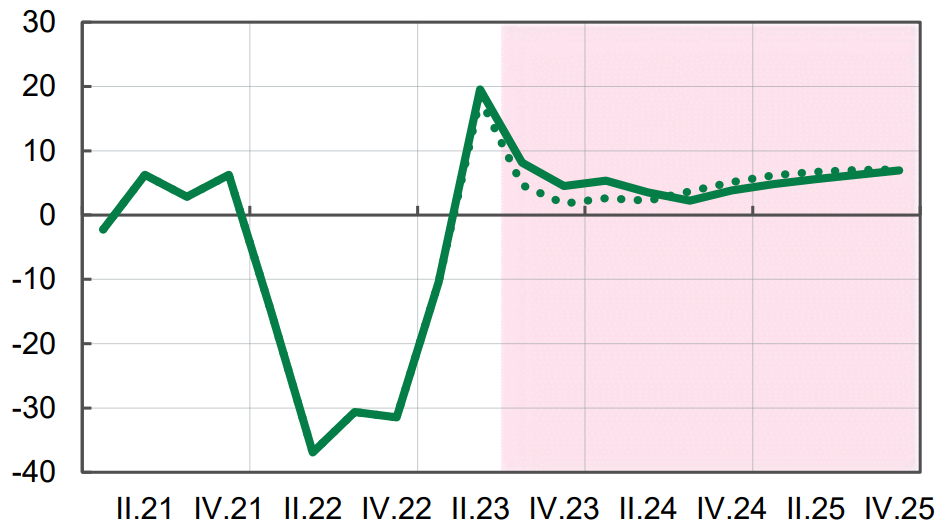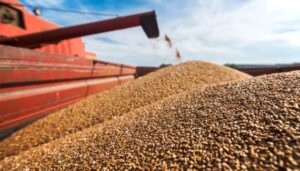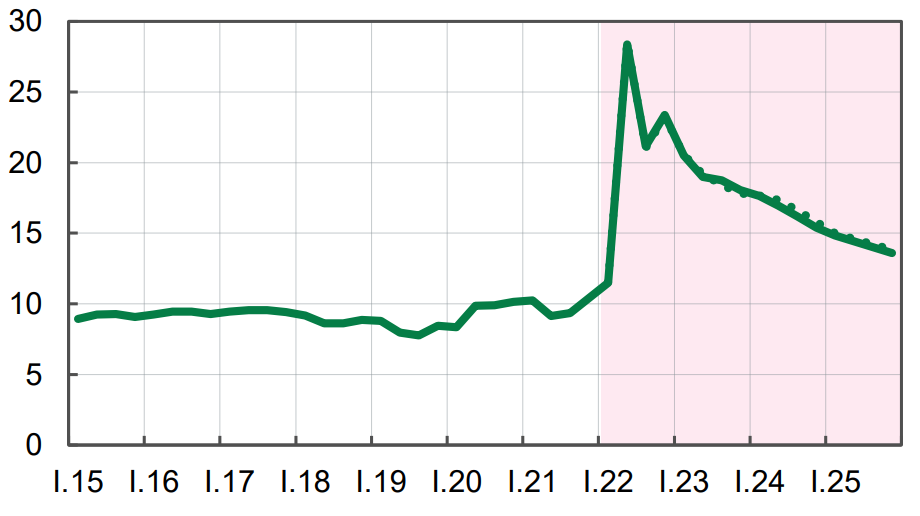
Under the procedural supervision of prosecutors from the Prosecutor General’s Office, Ukrainian businessman Gennadiy Bogolyubov was served a notice of suspicion of illegally obtaining another person’s passport and organizing the illegal transportation of a person across the state border of Ukraine.
“According to the investigation, the suspect organized an illegal border crossing by involving the head of the group of border control inspectors of the Yahodyn border service inspectors’ department of the Lutsk border detachment. For this purpose, the businessman used the passport of a citizen of Ukraine, which was lost in 2022, and the State Migration Service of Ukraine was notified. On the night of June 24, 2024, with the assistance of a border guard who knew for certain that he had been provided with a document in the name of another person for verification, the Ukrainian businessman illegally left the country,” the Prosecutor General’s Office said in a telegram.
The message does not specify the name of the businessman, but according to a press release from the State Bureau of Investigation, it is the former co-owner of Privat-Bank, Gennadiy Boholyubov.
The border guard was also served a notice of suspicion on the fact of illegal transportation of a citizen across the state border of Ukraine (Part 2 of Article 332 of the Criminal Code of Ukraine). At the request of the prosecutor, a custody was chosen as a measure of restraint with bail set at UAH 25 million.
Source: https://interfax.com.ua/
Real GDP in 2021-2025 (forecast)

Source: Open4Business.com.ua and experts.news

Oil continues to fall in price on Tuesday.
Traders are assessing the effects of Hurricane Beryl, which hit the Texas coast on Monday, and are following the negotiations between Israel and Hamas.
Expectations that the parties will agree on a ceasefire with the mediation of Qatar and Egypt are putting some pressure on the oil market, according to a review by the StoneX team of experts, as quoted by Market Watch. Analysts, however, note that “such negotiations have failed many times before.”
The cost of September futures for Brent on the London ICE Futures exchange as of 8:15 a.m. is $85.54 per barrel, which is $0.21 (0.24%) lower than at the close of the previous trading. On Monday, these contracts fell by $0.79 (0.9%) to $85.75 per barrel.
August futures for WTI in electronic trading on the New York Mercantile Exchange (NYMEX) fell by $0.22 (0.27%) to $82.11 per barrel by this time. As a result of the previous session, the value of these contracts decreased by $0.83 (1%) to $82.33 per barrel.
The effects of Hurricane Beryl were less severe than expected. However, some energy infrastructure facilities in Texas are still out of service due to the hurricane’s effects.
Traders’ attention this week is focused on the monthly reviews of the oil market by OPEC and the International Energy Agency.
In addition, the market is waiting for statements from Federal Reserve Chairman Jerome Powell, who will present a semi-annual report on monetary policy to the US Senate Banking Committee on Tuesday.

Ukraine exported 57.5 mln tonnes of grains and oilseeds in 2023-2024 marketing year, which ended on June 30, 2024, out of the harvest of 82.8 mln tonnes, while the carry-over stocks amounted to about 7 mln tonnes, the Ukrainian Grain Association (UGA) reported.
“Last season, the most important factor for the export of Ukrainian grain was the opening of the Ukrainian Humanitarian Corridor, which allowed exports by sea from the deep-water ports of Odesa region. The second most important factor was the introduction by Ukraine, together with international partners, of a working mechanism for insuring ships entering Ukrainian ports, which reduced the costs of exporters and, accordingly, Ukrainian agricultural producers for export logistics,” the association noted.
According to the UGA analysts, referring to the information of the State Customs Service, in monetary terms, the exports of grains and oilseeds in 2023/2024 MY amounted to $10.76 bln, and exports including products from them, including sunflower oil and other oils, cake and meal – $17.86 bln.
Wheat exports amounted to 18.4 million tons worth $3 billion, with production of about 22 million tons. The top 3 importing countries of Ukrainian wheat were Spain, which purchased 5.899 mln tons, Egypt – 1.721 mln tons, and Indonesia – 1.515 mln tons.
Ukraine exported almost 2.5 mln tons of barley for $376 mln, against the production of 5.8 mln tons. The most active buyers were China – 702 thousand tons, Indonesia – 460 thousand tons, and Cyprus – 221 thousand tons.
Last season, Ukraine exported 29.3 mln tons of corn worth $4.7 bln, compared to last year’s production of 29.6 mln tons. Its main buyers were Spain – 6.011 million tons, China – 4.832 million tons, and Egypt – 3.874 million tons.
Almost 3 mln tons of soybeans were sold to other countries for $1.1 bln, with a harvest of 4.9 mln tons. The top 3 buyers were Egypt – 956 thsd tonnes, Turkey – 674 thsd tonnes, and Germany – 235 thsd tonnes.
Ukraine exported 3.7 mln tons of rapeseed worth $1.4 bln, compared to last year’s production of 4.5 mln tons. The most active buyers were Germany – 1.226 mln tons, Romania – 609 thsd tonnes, and the Netherlands – 420 thsd tonnes.
Forecast of unemployment rate in Ukraine according to methodology of international labor organization until 2025

Source: Open4Business.com.ua and experts.news

In January-June this year, Ukrainian steelmakers increased production of total rolled products by 32.2% year-on-year, up to 3.140 million tons from 2.374 million tons, according to preliminary data. According to Ukrmetallurgprom’s information released on Monday evening, steel production increased by 37% in January-June 2023 to 3.874 million tons, while pig iron production increased by 22.3% to 3.467 million tons.
As reported, in 2023, Ukraine increased production of total rolled products by 0.4% compared to 2022 to 5.372 million tons, but reduced steel production by 0.6% to 6.228 million tons and pig iron by 6.1% to 6.003 million tons.
In 2022, Ukraine reduced production of total rolled products by 72% compared to 2021, to 5.350 million tons, steel by 70.7% to 6.263 million tons, and pig iron by 69.8% to 6.391 million tons.
In 2021, the company produced 21.165 million tons of pig iron (103.6% compared to 2020), 21.366 million tons of steel (103.6%), and 19.079 million tons of rolled products (103.5%).